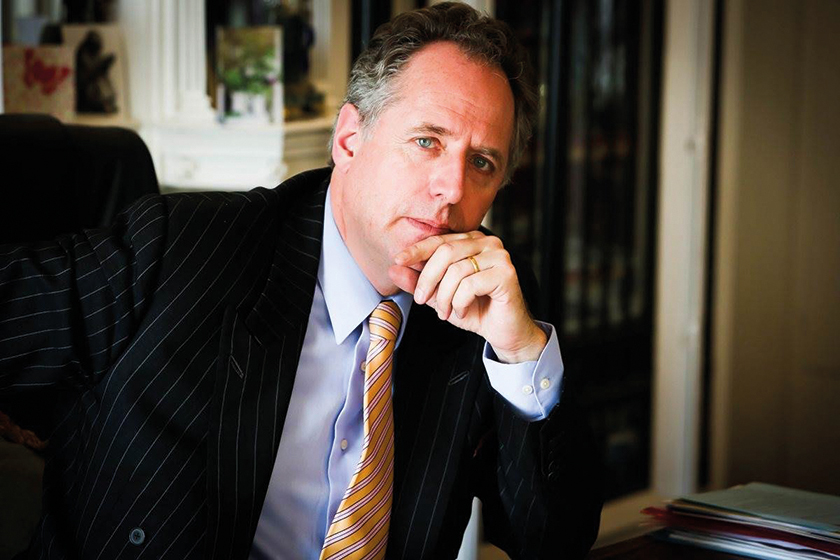The Charitable Status Debate
By
8 years ago

As over 100 independent schools are told to form an academy or lose their tax breaks, Dr Anthony Wallersteiner, headmaster of Stowe School, vents his frustration

Giving the independent sector a good kicking has become a national sport. Barely a week passes without a well-known public school being lambasted in the press for some real or imagined indiscretion. This is not to minimise genuine anguish and trauma, but I cannot remember a time when there was less political or popular support for public schools, which are becoming increasingly unaffordable for a great swathe of the population. VAT on school fees, loss of tax breaks that come with charitable status, competition from academies, free schools and the promised revival of grammar schools all threaten the survival of independent schools. As a historian, I am reminded of the immensely wealthy 16th-century monasteries – complacently secure in their immutable hieratic order, oblivious to their imminent consignment to the dustbin of history.
A criticism often levelled at independent schools is that many have lost touch with the charitable principles of their foundation.
Eton was founded in 1440 to provide free education for 70 boys. John Colet founded St Paul’s in 1509 to educate boys ‘from all nations and countries’. Sherborne and King Edward’s School, Birmingham’s wealth came from the dissolution of those same monasteries. These schools can carry out their charitable objectives with considerable aplomb. Endowment envy at HMC, the annual conference for the 283 leading independent schools, is rife among headmasters.
Stowe’s Charitable Endeavours
But what of more recent foundations? Stowe opened its doors to 99 boys in 1923. Despite its magnificence, Stowe’s endowment is a tiny fraction of the war chests of Winchester or Tonbridge. How can schools like ours preserve their charitable status amid the vocal disapproval of politicians like Michael Gove who cannot abide the idea of a school running a golf course, a beagle pack and an equestrian centre, and still claim charitable status.
Yet we do. More than a quarter of the Stoics are in receipt of means-tested bursaries and scholarships. Eight per cent of gross fee income – £2.3m – enables poorer pupils to access a Stowe education, thereby improving social mobility: pupils like Najib Afghan from Lashkar Gah, son of a cobbler who was killed by a Taliban rocket, who now studies economics in Pennsylvania.
Full bursaries support 50 pupils from a deprived Johannesburg suburb thanks to Sir Richard Branson.
Our partnership with the nearby Silverstone University Technical College created an engineering and hospitality hub, tapping into the expertise of Formula One teams. This partnership is founded on a principle of equality and mutual respect, not the patronising sponsorship outlined in the government paper Schools That Work for Everyone or the discredited election manifesto threatening over 100 independent schools that they must sponsor academies, found free schools or face losing tax benefits for non-compliance.
Charity is part of the school ethos: pupils and staff raise thousands annually for charities like Muscular Dystrophy UK, Send A Cow, Winston’s Wish, Mind and Comic Relief (featuring me riding a motorcycle up the chapel steps and dancing to Saturday Night Fever).
The school raised over £50,000 for the charity I chair, Children in Crisis (CiC), which educates children from war-torn African countries. Cambridge International College CiC programmes in Sierra Leone are building new schools, training teachers, financing village and savings loans associations and providing safe housing for abandoned children. In Afghanistan, CiC is running accelerated learning programmes for girls, pioneering psycho-social care and training juveniles in prisons.
Stowe has opened its doors to over 250,000 visitors a year and, in 1989, gifted 400 acres of Bridgeman, Capability Brown, William Kent and James Gibbs landscaped gardens to the National Trust – for everyone, for evermore. In 1997, the governors created the Stowe House Preservation Trust. Stowe’s charity for 2017/18 is Leonard Cheshire Disability, chosen to commemorate the 100th birthday of the Old Stoic, the only person to have won the VC and the OM. His life reminds us that we are remembered most for what we do for others.
Most of this activity does not meet the government’s criteria of public benefit, which is narrowly defined as supporting academies and free schools, but then again it is motivated by altruism and not political expediency – a quality our politicians have yet to discover.
READ MORE: How schools are giving back to the community



